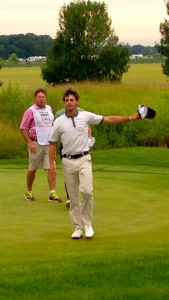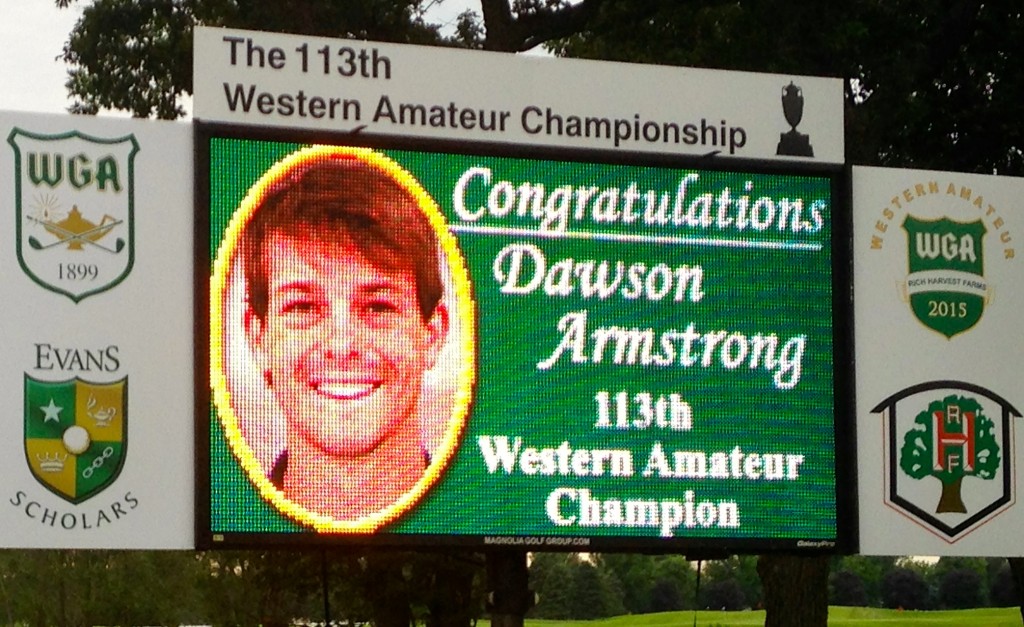The 115th U.S. Amateur started with over 7,000 entries world-wide, and 312 qualified for this week’s finals at Olympia Fields Country Club. Now there are only four players left.
Saturday’s semifinals pit Japan’s Kenta Konishi against Derek Bard, a University of Virginia golfer, and Bryson DeChambeau, the NCAA champions from Southern Methodist, against Sean Crocker, an 18-year old from Westlake Village, Calif.
DeChambeau, 21, from Clovis, Calif., was the most impressive survivor in Friday’s quarterfinals. He knocked out of Ireland’s Paul Dunne 3 and 2. Dunne, 22, was a sensation at last month’s British Open when he became the first amateur since Bobby Jones in 1930 win lead that major championship after 54 holes before finishing in a tie for 30th place.
The season has already been a success for DeChambeau, in that he qualified for the U.S. Open and has already been selected for the U.S. Walker Cup team that will take on the Europeans this fall. He’s also the only player in the top 10 in the World Amateur Golf Rankings to still be alive in the U.S. Amateur. DeChambeau carries at No. 7 ranking.
“I so excited,’’ said DeChambeau. “This is the first time I’ve made the semifinals in a USGA event.’’
To get to Sunday’s 36-hole title match, however, DeChambeau must handle Crocker, a 2-up winner over Austin James of Canada. Crocker, born in Zimbabwe, moved to the United States when he was 6 years old. He attends Southern California and is No. 64 in the world rankings.
Konishi, ranked only 632, is playing in his first USGA championship. Konishi was a 1-up winner over Matthew Perrine, a Baylor University sophomore from Austin, Tex., on Friday.
Biggest upset of the quarterfinals came when Bard eliminated Spain’s Jon Rahm’s, the worlds’ top-ranked amateur, 1-up. Bard came after 3-down after 10 holes to get to the semis.
“The whole time I tried to stay positive and patient,’’ said Bard, who birdied the 11th and 12th holes and pulled even when Rahm, who attends Arizona State, three-putted at No. 16. Bard won No. 17 and they halved the 18th.





